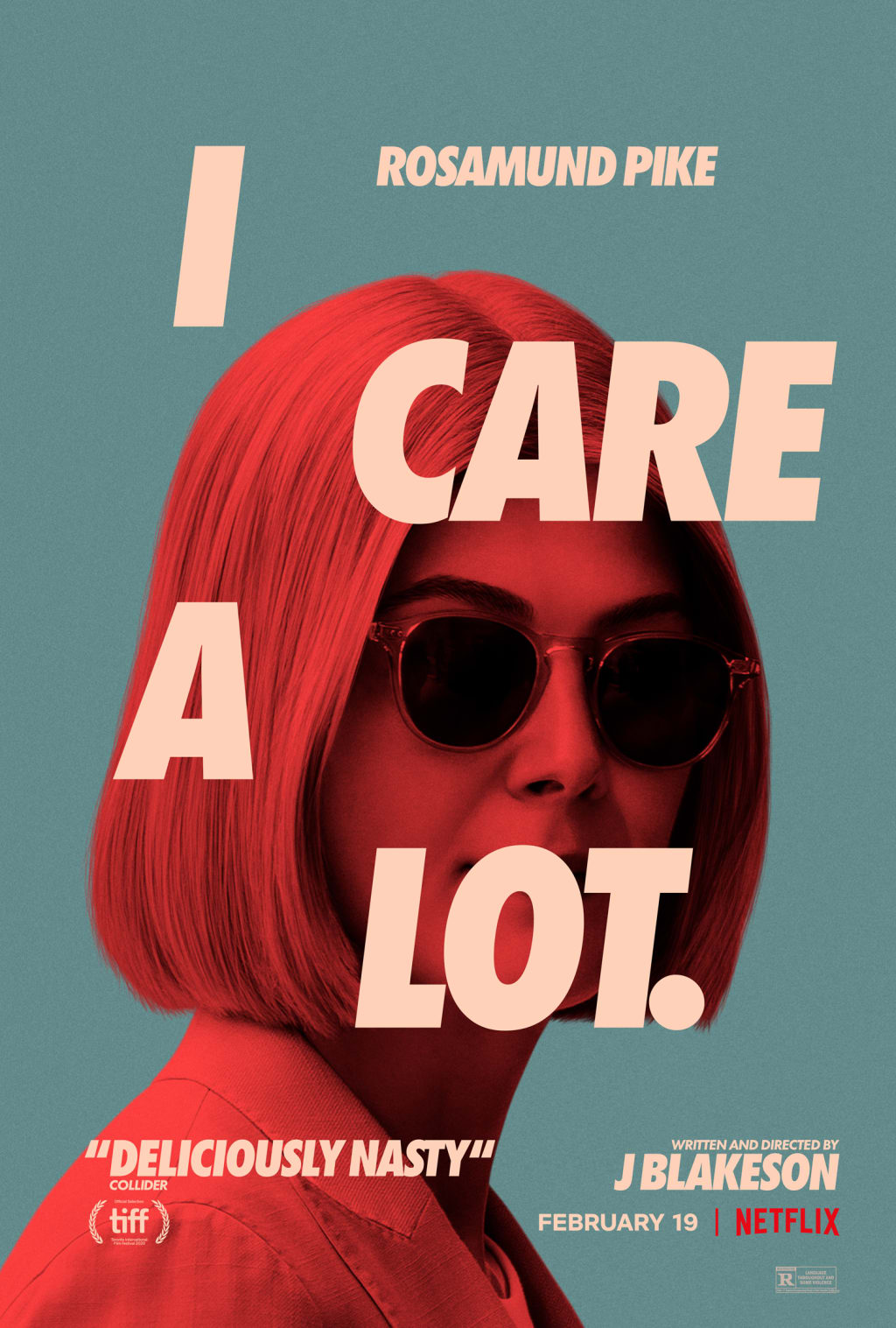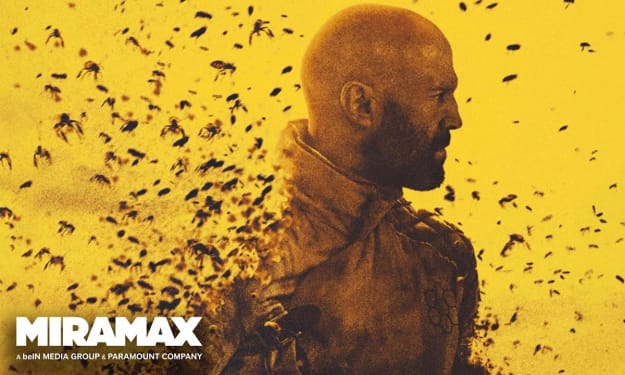
I didn't expect to come back on this platform following my three-year writing hiatus. However, two films on Netflix that I have watched recently have pushed me back into the writing world. Needless to say, I am grateful for them doing so because then I would not have had the opportunity to discuss the exploitation that institutions and the system put their people through.
It is no known secret that the system has never been for the people or in their best interest. Rather, it has worked against them in some circumstances.
With that being said, I will start off with the dark comedy film I Care a Lot (2021), which focuses on Marla's role as a court-appointed guardian for elderly wards of the state. After years of experience taking advantage of them financially, Marla and her lover set their eyes on a new target who makes their lives difficult with her suspicious past. Though this film convinces the audience to side with the protagonist and her partner, it also reminds us that viewers should not be rooting for this couple and their intentions.
The reality is what they are doing is unethical. They are solely controlling the funds of the elderly in the state's custody and keeping them away from their family at all costs. At some point in the film, the ward, Jennifer Peterson, does try to escape to reunite with her son but is stopped by Marla and her team at the facility where she temporarily resides. This kind of situation happens more times than we know, where the system does everything in its power to separate elderly individuals from their loved ones because they are unfit to be by themselves or in the care of their family.
Similar to I Care a Lot, Take Care of Maya (2023), a Netflix documentary that just came out recently, also shines a light on how the system makes "false" claims that often result in the removal of individuals from their homes. 10-year-old Maya was diagnosed with CRPS (Complex Regional Pain Syndrome), a rare condition where pain or inflammation of limbs takes place mostly in the arms and legs. In her long battle dealing with the syndrome, Maya's family has fought hard to find the correct treatment to help their daughter. After being sent to various doctors and hospitals, Maya's body responded well to the medication she had been receiving when she was under the care of a new doctor.
The doctor who treated her and her mother, a nurse, came to the conclusion that the only way for the medication to be effective for Maya was to have her take it in high doses.
While this routine had worked for some time, at one point, Maya ended up going to the hospital for stomach pain at John Hopkins Children's Hospital. During her stay there, her mother was labeled as unfit to take care of her daughter because her personal understanding and research of her daughter's condition were mistaken for child abuse. Following this report of overmedication and Munchausen syndrome, Maya was under the care of the state, to which her father hired a lawyer.
During Maya's time away from her family, she was not allowed visitation privileges concerning her family. She was often limited to phone calls, especially with her "belligerent" mother, who was not allowed to discuss anything regarding her daughter's medical care. Apparently, Maya's mother was unable to visit her daughter because she was deemed a "threat" to her daughter's wellbeing. Similar to Maya's case, Peterson was stripped of certain privileges that cut off any access she had to the outside world. She also could not communicate with her son, leaving her helpless and alone.
When Maya's case was brought to court, she did not go back to her family. This crushed her mother, but what broke her heart was the fact that she was prohibited from giving her daughter a hug or any form of endearment for one last time. Knowing that the mother was already in emotional distress after not seeing her daughter for several months, the state kept Maya under their care.
My question is, why did the judge not allow the mother to have one moment alone with her child in the presence of a guardian, at least before or after the decision was made final? This is cruel and taunting to the mother, who cooperated during the trial and the investigation. She was under the impression that she would have a fair trial due to her cooperation and lack of evidence of Maya being medically abused.
It is understandable that institutions have to follow protocol and practice tradition and the court of law through their jobs and their roles. However, when is it appropriate to break protocol once or a few times, depending on the circumstances? Yes, no one should receive a pass or have certain advantages that everyone else does not have, but if these sorts of things did not happen, none of the laws we have now would have been put into place by the state and the federal government. It always takes one case for new laws to be introduced and former laws to be terminated.
Authorities are in the right when they are putting the priority of children and elderly individuals first. They have that obligation to protect them from harm and place them somewhere they are getting the proper care. However, they are in the wrong when they know what they are doing to these families is wrong.
That is the problem with the system. They do not care about the people because if they did, affordable healthcare and housing would exist. Safety on gun laws would have already been established. Authorities working in the system view the people as commodities, inanimate being without subjectivity. In I Care a Lot, inappropriate phrases and terms are used to refer to the wards of the state. Not only that but insight into how professionals "possibly" discuss how people become wards of the state was shown in the film. It was disgusting how desensitized the main character and everyone who worked with or for her were towards Peterson and other elderly people in their care.
In addition, Maya spoke about how nurses who looked after her called her a liar and said she was faking her condition. On any occasion, it is unacceptable and inappropriate for someone in that profession who cares for people to speak in that manner. But, what this shows is why people do not trust hospitals because they are not being taken seriously or they are being taken seriously to the point where authorities are called on them for committing to, most likely in some cases, did not do.
At the end of the day, the healthcare system has a responsibility to serve the public because that was the job that they signed up for. Sure, they got their job for different reasons, but that does not omit the fact that they have obligations to their patients. I Care a Lot (2021) and Take Care of Maya (2023) are only the tip of the iceberg of the exploitation of patients by the system. Children and the elderly are two of the most victimized groups of people to be taken advantage of by the state. I do believe that more awareness needs to be brought to these two intriguing films because they shine a light on the issues within the healthcare and legal system.
About the Creator
Mi World
a safe place for poems, tv and movie reviews, album reviews, etc.






Comments
There are no comments for this story
Be the first to respond and start the conversation.